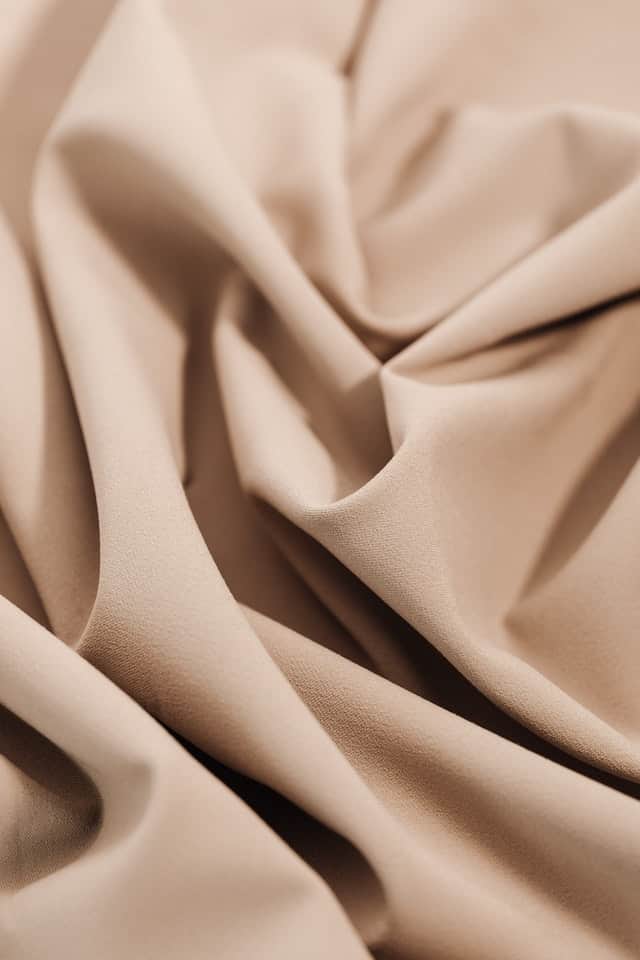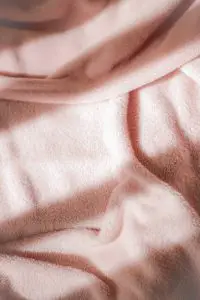Polyester and cotton are amongst the most popular fabrics in the textile industry. People use them for garments and home décor. Since they’re so easy to use for similar purposes, it can be easy to confuse one for the other. However, are they similar? If not, what are the differences between the two? This polyester vs cotton comparison answers your questions and will also help you determine which the better option is. Keep reading to find out more about polyester and carbon and how they differ extensively from each other.
What is Cotton?
Cotton is a natural fiber that’s relatively hypoallergenic, soft, and breathable. It is a common fabric used in production for many years globally. Cotton’s versatility is responsible for its popularity. You can use cotton for accessories like beddings, carpets, upholstery, and clothing. In addition, it is adaptable and easy to work with, making it a favorite for most clothing manufacturers.
Cotton comes in three fiber lengths which you can use for different products. The long-staple fibers feature a top-quality fabric, while the medium staple is ideal for everyday wear. On the other hand, the short-staple is ideal for low-quality items and carpets.
What is Polyester?
Understanding polyester is also crucial for the polyester vs cotton comparison. It is a petroleum-based synthetic material that’s relatively light and far more durable than cotton. As a result, you can use it for many similar products to cotton. Polyester was developed in the 20th century and was popular in the 1970s as a cheaper alternative to cotton. As an artificial fabric, polyester is quite popular and long-lasting. It is also ideal for outdoor accessories and activity wear. In addition, polyester has excellent moisture-wicking and drying features.
Polyester vs Cotton – Learning the Differences
Now, how do you know the difference between cotton and polyester? In this section of the polyester vs cotton comparison, we’ll explore their strength and weaknesses to make an informed choice for your sewing preference.
Polyester vs Cotton – Breathability
One of the critical differences in the polyester vs cotton comparison is breathability. Breathability refers to the fabric’s capacity to allow moisture to escape from the body while air circulates through the fibers. Cotton is entirely breathable, so it has remained popular in garment making. The ability to breathe makes cotton ideal when creating clothes to wear close to the skin, especially when it concerns underwear.
However, cotton has a downside. Although it is pretty breathable, it isn’t great at wicking moisture away. When cotton absorbs water, it tends to stay wet for a while. The thickness of this fabric usually determines how long it takes to dry. If you live in a location with a cold climate, it could ultimately spell disaster. A slow-drying fabric can usually lead to hypothermia at a lower temperature.
On the other side of this polyester vs cotton comparison, polyester isn’t breathable and is petroleum-based. This property can make it quite uncomfortable in hot climates and the summer. This is because moisture remains next to the skin. In such temperatures, the fabric can become wet and clingy, leading to discomfort for the wearer.
However, as a synthetic material, it dries fast. This is achievable because it doesn’t absorb liquid; the liquid stays on the material’s surface and then dissipates through evaporation. Therefore, it can be advantageous in rainwear or outerwear as a water-resistant material.
Polyester vs Cotton – Durability
Polyester and cotton are two durable fabrics, as this polyester vs cotton comparison points out. Cotton’s strength lies in its different weaves. However, some cotton fabrics are more durable than other options. It depends on the weave density and the number of fibers it features per weave. Additionally, cotton is soft and can easily be damaged. Therefore, the heavier cotton is, the stronger it tends to be. A quick fact is that cotton is strongest when it is wet. That’s why it efficiently withstands several washes in hot water.
In the end, it depends on the weaving pattern. For example, a cotton lawn would be much softer than denim cotton. Cotton fiber is also biodegradable, allowing it to break down. However, even the heavier cotton fabrics tend to wear out. Cotton’s biggest enemies are sunlight and time. With enough of each, cotton will automatically degrade.
On the other hand, polyester can be pretty durable. Since it is plastic, the fibers are pretty resilient to stains, water, and creases. They don’t break down, which makes them exceptionally strong and able to withstand wear and tear for many years. However, this durability feature in the polyester vs cotton comparison can become an issue for polyester when it comes to disposal. Like other plastics, polyester can compost and last years in a landfill.
Polyester vs Cotton – Warmth
Cotton is available in different weights and comes with a variation ideal for changing seasonal temperatures. Additionally, it is excellent as a layering fabric. Even the lightest summer top can be used in winter when you use it to layer over another garment. The ability to wear cotton as a layer makes it a top choice for cooler climates. Since it is breathable, it will also let air flow through the layers, providing little insulation pockets.
If you wear undergarments like tee-shirts and sweaters, you’re sure to be quite toasty. There is some cotton made to be winter weight. This means they’re pretty heavy. These are usually flannel and twill. They are cotton fabrics popular for the warmth they offer.
Unfortunately, you can get too warm in fabric because although it absorbs sweat from the body, it takes a while to dry. Therefore, it keeps chilly clothing next to your body, making you quite cold.
On the other hand, polyester isn’t a breathable factor and doesn’t let air through. This way, it creams ample insulation for the body. However, when worn close to the skin, it can lead to sweating. It is bad news in colder climates because it causes you to sweat, reduces your temperature, and leaves you freezing.
Polyester can keep you warm to an extent. A common option is a fleece which is popular for making hoodies and jackets. However, although it traps heat next to the body, it isn’t also a good insulator. In addition, fleece is one of the polyesters that are not waterproof, and therefore, cold and warm air will significantly reduce the fabric’s temperature, leaving you cold. To make it more efficient, you need to add layers of clothing from other fabrics like wool or cotton beneath.
In this polyester vs cotton comparison, it’s clear that polyester is best as an outdoor garment. It will act as a shell over your winter clothing, keeping the heat inside and you warm.
Polyester vs Cotton – Softness
Cotton comes from the fluffy fibers of the cotton plant. Therefore, it is naturally a soft fiver. This makes cotton clothing quite soft to wear and even to the touch. However, it is notable that not all cotton is soft and fluffy. The term cotton covers a vast range of fabrics. Additionally, this includes lightweight cotton voile and heavyweight twill. Your option determines the softness level you will get.
Denim and cotton canvas is cotton-based, but they’re pretty coarse and hard when you feel them. They can withstand heavy use and industrial work, as reflected by the weave. On the other hand, flannel can be soft and cozy. Its weaving is in a way that allows you to maintain the inherent softness it is known for. It’s weaving also enables it to trap in the warmth.
On the other hand, polyester is an artificial fabric derived from artificial fibers. Since it is petroleum-based, it feels more like plastic. It doesn’t have the same softness you would get from cotton, a natural fiber. However, polyester has changed over the years due to modern technology. Just like cotton has different weaves, you can process it in different ways. An option is the double-brushed polyester fabric that’s super-soft and feels quite comfortable to the touch.
Since polyester is a synthetic fiber, you can easily manipulate and mold it into any fabric you want. While some of the fibers retain the coldness of plastic, others imitate the softness of the cotton fabric. As a result, it can be tough to discern which is cotton and which fabric.
Polyester vs Cotton – Thickness
Cotton and polyester feature different thicknesses depending on the fabric weave and the product it is for. Although they have different characteristics, as made clear in the polyester vs cotton comparison, you can use the materials to make lightweight and heavy-duty items. The fabric thickness is known as the denier. Denier is when the number of threads in each material per inch. Fabrics with low deniers have a thin weave like cotton voile. A higher denier would also indicate a heavier weave, like corduroy.
Although these two fabrics have a common thread count, the weight is an altogether different topic. Thicker polyester fabric will feel lighter than heavyweight cotton fabric. Although the thread count of polyester can be high, it makes the weave thicker and the fabric quite durable. It will modify the weight slightly, but a heavyweight polyester usually feels lighter than thick denim.
Increasing the fiber count in a cotton fabric helps create a tighter weave of threads. In addition, the size of the yarn used in the material can add extra weight. However, heavy-duty cotton is a lot heavier and thick than polyester.
Polyester vs Cotton – Moisture Wicking
Natural fibers are the best fabrics for wicking away moisture. However, cotton and polyester seem to be the exception to the rule. Of the two fabrics, polyester is better at moisture-wicking than cotton. This is quite strange, seeing as it is a synthetic material. Its ability to allow sweat to evaporate makes it an ideal component of activewear. A top disadvantage of polyester is that it doesn’t wick away orders. It also dries quickly but holds on to the smell from the sweating session. When you make it into a fabric, you will need to wash it regularly.
Cotton doesn’t wick away moisture; it simply absorbs it. It can wick the moisture away in many ways. Absorbing the liquid helps move it from the body quicker, allowing you to stay cool. However, cotton can hold on to moisture and become soggy. It can be pretty uncomfortable, but your sweat-soaked shirt can help you stay cool in hot temperatures.
A Great Online Class: Color Theory for Textile Projects by Domestika
If you are interested in learning more about how you can create a successful name for your business, we recommend taking a look at the online class “Color Theory for Textile Projects”.
The course is currently under promotion, but you can use the discount code: T_BROWNLEES-PROMO to get an additional 10% discount on your purchase.
This online class offered by Domestika, at a very inexpensive price covers all you need to know to develop your textile project by leveraging color theory to create the perfect color palette. If you apply to the course through the link below you’ll be supporting 440 Industries, and we thank you for it!
Final Thoughts
Knowing the suitable fabric for us is tricky to answer concerning cotton and polyester. This polyester vs cotton comparison shows that both have good and bad features. However, they’re still popular options when it concerns fabrics. Polyester is a cheaper and water-repellent option; it is suitable for constant wear because of its durability. Cotton is soft and comfortable. However, it is outshining polyester as the go-to fabric for garments you can wear next to the skin. There isn’t much difference between the two, making it difficult to choose. We hope this polyester vs cotton comparison helped you decide which fabric is ideal for your project.







